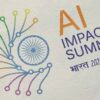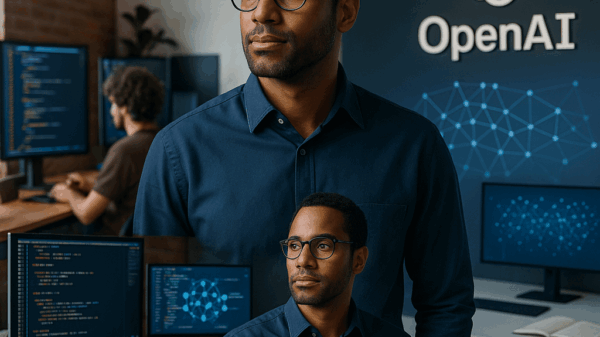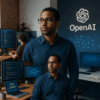The head of Google’s parent company, Alphabet, has emphasized the importance of skepticism when it comes to using artificial intelligence (AI) tools, advising users not to “blindly trust” the information these systems provide. In a recent interview with the BBC, Sundar Pichai, the CEO of Alphabet, highlighted the inherent limitations of AI models, stating they are “prone to errors” and should be utilized in conjunction with other resources.
Pichai’s comments come at a time when the AI industry is experiencing significant growth and investment, raising concerns about a potential bubble in the technology sector. He candidly acknowledged that no company, including Google, would be immune to the consequences if such a bubble were to burst. “I think no company is going to be immune, including us,” he remarked, reflecting on the broader risks that companies face as they navigate this rapidly evolving landscape.
The CEO pointed out that since May, Google has introduced an “AI Mode” as part of its search functionality, integrating its Gemini chatbot to provide users with what feels like an expert consultation. The upcoming launch of Google’s consumer AI model, Gemini 3.0, is anticipated but a specific release date has yet to be announced. Pichai noted that while these tools can be beneficial for tasks like creative writing, they require users to understand their strengths and weaknesses. “We take pride in the amount of work we put in to give us as accurate information as possible, but the current state-of-the-art AI technology is prone to some errors,” he explained.
Silicon Valley is rife with discussions about the unsustainable growth of AI technology companies, with Pichai suggesting that the current investment atmosphere resembles previous tech booms. “We can look back at the internet right now. There was clearly a lot of excess investment, but none of us would question whether the internet was profound,” he stated, drawing a parallel to the current AI landscape. Pichai’s perspective implies that while AI holds transformative potential, the current frenzy could contain elements of both rational investment and irrational exuberance.
In addition to discussing AI’s limitations, Pichai’s interview comes on the heels of warnings from prominent financial figures about economic instability. Jamie Dimon, the chairman and CEO of JPMorgan Chase, has expressed heightened concern over the likelihood of a U.S. stock market crash, predicting it could occur within the next six months to two years. Dimon cited multiple factors contributing to this uncertainty, including geopolitical tensions and fiscal spending.
As the AI sector continues to expand, the implications of Pichai’s statements resonate with the broader themes of caution and discernment within technology adoption. The emphasis on careful usage and critical engagement with AI tools underscores the necessity for users to remain informed and vigilant in this dynamic environment. As AI technologies like Gemini evolve, the challenge will be balancing innovation with a grounded understanding of their limitations and potential impacts.
See also Stock Markets Slide as Nvidia Earnings Loom and US Jobs Report Sparks Fed Concerns
Stock Markets Slide as Nvidia Earnings Loom and US Jobs Report Sparks Fed Concerns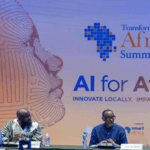 Africa’s AI Market Poised to Reach $20B by 2030, Emphasizes Local Solutions and Inclusion
Africa’s AI Market Poised to Reach $20B by 2030, Emphasizes Local Solutions and Inclusion AI Chatbots Mislead UK Consumers on Financial Advice, Which? Study Reveals Major Errors
AI Chatbots Mislead UK Consumers on Financial Advice, Which? Study Reveals Major Errors Denmark Proposes Landmark Law to Protect Rights to Image and Combat AI Deepfakes
Denmark Proposes Landmark Law to Protect Rights to Image and Combat AI Deepfakes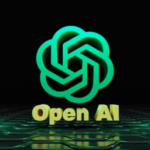 OpenAI Explores Personalized Ad Model for ChatGPT Amid Rising Commerce Queries
OpenAI Explores Personalized Ad Model for ChatGPT Amid Rising Commerce Queries




























































